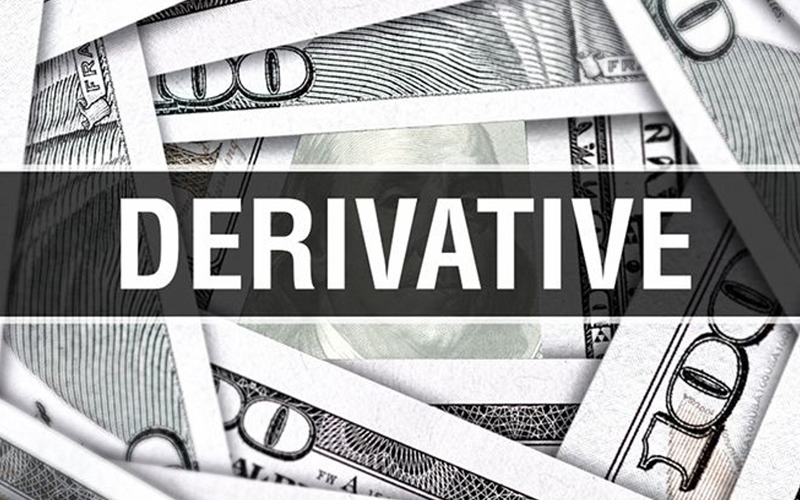Have you been thinking about diversifying to ensure passive sources of income? Are you hoping to put away your cash and thrash the rising swelling in the economy? Derivatives have you covered! Here is a simple guide to derivatives and how one can benefit from investing in them.
Derivatives and Their Types
Derivatives area type of financial contracts or agreements. Its worth is connected directly to the estimation of an underlying asset. They are perplexing financial instruments that are used for hedging and various other purposes. The use of derivatives can be traced back to some of the earliest civilizations like the Mesopotamia Civilization. Although the derivatives gained widespread popularity in the 1970’s, they have become a very integral source of investing. Derivatives involve a higher level of risk and are considered as a bull investing method which is based on the speculative intuitions of the investors. The derivatives are usually traded over the counter (OTC). However, there exist some futures which are traded in exchanges such as the Chicago Mercantile Exchange and Chicago Board Of Trade(CME Group), Eurex and the Korea Exchange.
There are various derivatives available in the market an investor can invest their money in.
Some of them are –
- Forward And Futures Contracts:
Forward Contracts are financial agreements which specify the buying and selling of an asset at a later date, whose price is derived from an underlying asset. Forwards are arrangements made over the counter, where a contract is drawn between the two parties who settle the terms of the agreement. These contracts define the expiration date, the number of units of the underlying asset, what precisely the underlying assets to be delivered is. Another distinguishing feature of forward contracts is that they are settled only once, after the expiration of the contract.
Future Contracts are very similar to the Forward Contracts. It involves drawing up an agreement between the two parties involved, specifying the buying and selling of an asset at a future date. The striking difference between Futures and Forward Contracts is that while Futures are settled on a day to day basis while Forwards are traded over exchanges. Contracts can be drawn on currencies, stock exchange indexes and commodities.
- Swap Contracts:
Swap Contracts are over the counter(OTC) contracts between two parties. The counterparties exchange the benefits of one party’s financial instruments for those of the other party’s financial instrument. Most swaps include incomes dependent on a notional principal amount, for example, a loan or a bond. There are various types of swaps like the Interest Rate Swaps, Commodity Swaps, Currency Swaps and various others. Whilst the most common type of Swaps are the interest rate swaps, where the parties hedge against the interest rate risk or to speculate the market.
- Options:
Options are the derivatives which are derived from the value of an underlying asset or security such as stocks. An options contract allows the buyer to buy or sell the underlying asset in accordance to the terms mentioned in the contract, but dissimilar to the futures the holder is not liable to buy or sell the option if he/she chooses not to.
There are two types of options:
- Call Option: This option allows the holder to buy the asset during a specified period of time.
- Put Option: This option allows the holder to sell the asset during a specified period of time.
Options are a popular choice amongst investors. It allows the speculator to hold a leveraged position and would incur less cost rather than investing their money in buying the stocks of the asset. Whilst Investors use options as a risk aversion instrument through which they hedge and reduce the vulnerability of their portfolios to risk.
Pros and Cons of Derivatives
There are various benefits of trading in derivatives:
- Increases Market Efficiency:
The use of derivatives is considered to increase the efficiency of the financial markets. These derivative contracts enable the investor to clone the payout generated off of the assets. Therefore there is an equilibrium between the price of the underlying asset and the associated derivative to steer clear of any arbitrage opportunities.
- Restrict Risk Exposure:
Since the derivatives’ values are determined by the value of the underlying asset, the contracts are commonly used for hedging risks. For example when an investor purchases a derivative contract whose value moves in the opposite direction than that of the underlying asset owned by the investor, the profits made through the derivative contract might countervail the losses incurred in the value of the underlying asset.
- Deciding Asset Price Determination:
Derivatives are used as instruments to determine the price of the underlying asset. The spot price at which an investor purchases a future can help estimate the price of the commodity.
While there are numerous ways an investor can benefit from derivatives, there also exist a few cons:
- Speculative Characteristics:
The exceedingly risky nature of Derivatives and their volatile behaviour subjects the investor to think wisely before making any speculations. If not researched about properly or a preposterous guess could expose the investor to huge potential losses.
- Default Risks:
Derivatives bear a high intrinsic risk. The complex format of the contracts makes the valuation process extremely troublesome and the volatile nature of the derivatives opens the investor to the odds of incurring huge losses.
Why Should You Invest in Derivatives?
An investor might explore investing in derivatives for three major reasons – hedging, leveraging or to speculate the movement of an asset. Hedging allows the investor to reduce the exposure of risk over his portfolio while the volatile nature of derivatives can help the investor increase leverage in accordance to the price movement of the underlying asset. Derivatives are also an instrument of approximating the future price of an asset, which an investor could speculate upon.
Bottom Line
Derivatives are financial contracts the value of which is estimated based on the worth of the connected underlying asset. They are referred to as a great investment instrument. Derivatives are considered a bull investment which also increases your chance of earning high returns. It offers the investor to hedge against risk posed to their portfolio. However, an investor should be very cautious while investing in derivatives as the volatile nature of the instruments exposes them to the risk of potential losses. There are wide varieties of derivatives an investor can choose from, depending upon the types of assets one is looking to invest in. Derivatives bode well if the investor is mindful of the dangers and can comprehend the effects of speculation inside a more extensive portfolio strategy.



